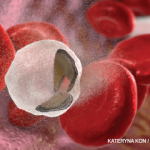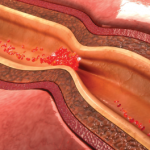SAN DIEGO—It’s no secret: Autoimmune, inflammatory rheumatic disease raises a patient’s risk of cardiovascular disease (CVD). “Inflammation may affect all aspects of the cardiac structure and function,” said Rekha Mankad, MD, FACC, director of the Women’s Heart Clinic at the Mayo Clinic in Rochester, Minn. Dr. Mankad also oversees a cardio-rheumatology clinic to assess and treat…






